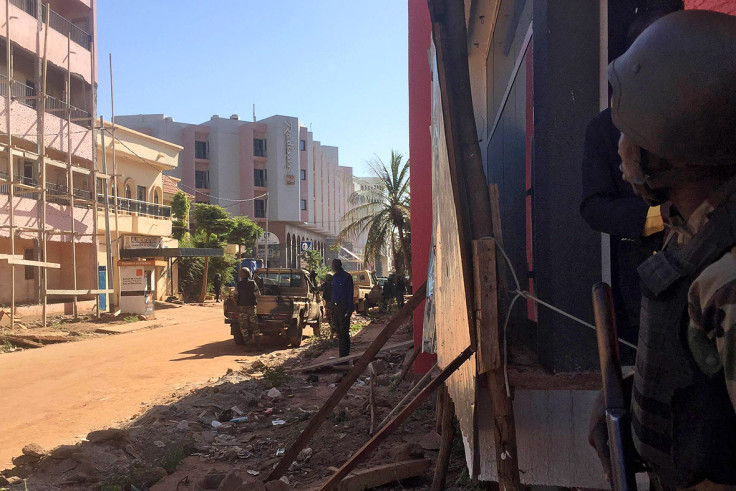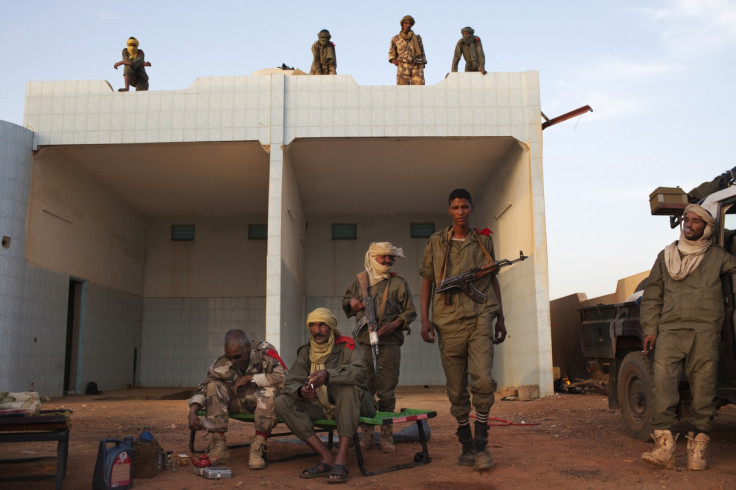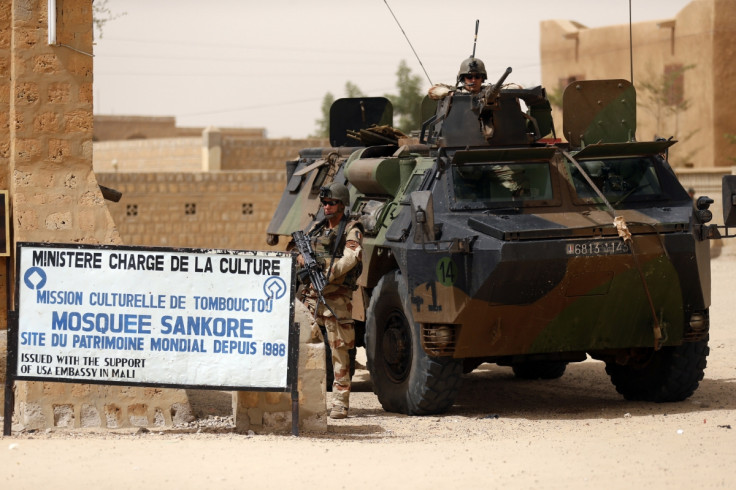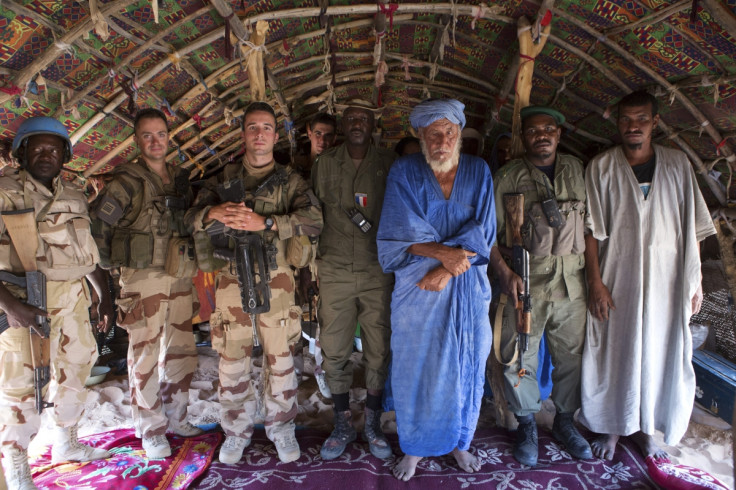Mali hotel attack: The history of Islamist insurgency in the former French colony

Gunmen shouting Islamic slogans attacked a luxury hotel Radisson Hotel in Mali's capital Bamako on 20 November. At least three people have died with about 170 taken hostage, according to security forces on the scene.
"Jihadists are firing in the corridor," a source, quoted by the AFP said, as it was revealed that UN forces were holding a function at the hotel.
IBTimes UK looks at why the hotel in Mali, a country with a population which is at 55% Muslim, may have been targeted.
Mali: a French colony
France invaded and seized control of Mali during the late 19th-century scramble for Africa, effectively making it a part of colonial territory, French Sudan (which changed its name to the Sudanese Republic), by 1905.
The Tuareg, Berber people with a traditionally nomadic pastoral lifestyle, first resisted the French invasion of their Central Saharan homelands, but capitulated to the French modern weapons.
The French colony of Mali gained independence in 1959 but joined a federation with Senegal called the Mali Federation during which time it retained close connections with France.
Just a year later, in 1960, the Sudanese Republic declared itself the independent Republic of Mali, and Modibo Keïta was elected the first president.
Tuareg uprisings
The traditional Tuareg territory was divided despite many expecting an independent Tuareg, Berber, and Arab nation to be formed by the Sahara desert regions when French colonialism ended. The Malian Army suppressed the Tuareg rebellion (1962–1964), known as the Alfellaga.
In 1968, the Keïta regime was overthrown in a bloodless military coup led by Moussa Traoré, whose rule repressed all dissenters until the late 1980s, as Traoré continued to refuse to establish in a fully-fledged democratic system.
In 1990, opposition movements began to emerge. This coincided with the rise of ethnic violence, as resentment among many Tuaregs in the north of the country fuelled a second uprising.

Tuareg in both Mali and Niger claimed autonomy for their traditional homeland in the Azawad and Kidal regions of Mali. Thousands were killed in clashes opposing Tuaregs and the government army. In 1992, following negotiations led by France and Algeria, a peace agreement was signed.
The Tuareg's second rebellion in Mali, however, began in 2012, when Tuareg soldiers returned to northern Mali after fighting in the Libyan Civil War – forming the National Movement for the Liberation of Azawad (MNLA).
The Al-Qadea link
The Tuareg conflict reappeared in the headlines following the kidnapping in late 2008 in Niger of two Canadian diplomats – including Canadian diplomat to Niger Robert Fowler – and four European tourists by groups associated with Al-Qaeda Organization in the Islamic Maghreb (AQIM), who held their victims somewhere in northern Mali.
At the time, news reports indicated Tuareg smugglers – perhaps associated with rebel groups – could have taken the hostages before selling them to the AQIM.
Four years later, Islamist groups Ansar Dine and the Movement for Oneness and Jihad in West Africa (MOJWA) started imposing shariah law in the Tuareg's Azawad homeland, prompting a conflict between the groups. The MNLA was soon pushed out of all the major cities.
Residents described how women were made to wear the veil, men made to grow beards. Those who violated the rules were whipped in public, or had their "hands (...) feet cut off", Seydou Baba Kounta, a professional tour guide said at the time.

French-led Operation Serval
The Islamists' progress and ethnic uprisings prompted the Malian government to seek help from the international community.
In 2013, French troops were deployed in the African nation to help Malian soldiers halt the insurgency and Tuareg rebels, AQIM militants, as well as smugglers were targeted in the Operation Serval. Some 4,000 French troops were deployed.
Troops were supported by the United Nations Multidimensional Integrated Stabilization Mission in Mali (Minusma), initially created to stabilise the country after the Tuareg rebellion.
On 14 January, the separatist MNLA declared it would fight alongside the French and even the Malian government to "end terrorism in Azawad". On 27 January, French troops liberated Timbuktu, located on the southern edge of the Sahara Desert.
In July 2013, Minusma troops officially took over responsibility for patrolling the country's north from France and the African-led International Support Mission to Mali (AFISMA).
Serval, the aim of which was to oust Islamic militants in the north of Mali, ended in July 2014 after a number of Islamist leaders – Abdelhamid Abou Zeid, Abdel Krim and Omar Ould Hamaha – were killed. It is estimated between 600 and 1,000 Islamists fighters were also killed. It was replaced by the Operation Barkhane in August 2014.
In spite of having been liberated from Islamist fighters Timbuktu, like much of northern Mali, was struggling to recover from the effects of the nine-month occupation.
Mali's huge natural resources
Mali has considerable natural resources: it sits on a number of phosphates, kaolinite, and limestone deposits, and is the third largest producer of gold on the African continent.
The nation is also estimated to have in excess of 17,400 tonnes of uranium, and in 2012, a new uranium deposit zone was identified.

The Falea uranium deposit, in southwestern Mali, was first discovered by the French industrial group COGEMA (Compagnie générale des matières atomiques) in the 1970s before being explored by Denison Mines of Canada.
COGEMA, which is now part of French company Areva, the world's largest nuclear company, has operations in Niger, Mali's neighbour. Areva is now reported to be exploring the Saraya East uranium deposit, 80 km from Falea.
In November 2012, RFI radio reported that French president Francois Hollande met Niger's president, Mahamadou Issoufou, to discuss a "military intervention" and the protection of French uranium operations at the Malian border.
A fight for uranium?
In January 2013, Stéphane Lhomme, a director of the Observatoire du nucléaire – an independent watchdog of the nuclear industry – questioned the reasons behind the French operation in Mali.
Writing for the Obs, Lhomme asked why France described its invasion as an operation "for Mali's democracy", "when it's been decades that it has been trampled by corrupted regimes largely supported by France". "Why this sudden "democratic" urgency?" he asked.
The expert claimed the operation's aim to secure the region was a disguise for the fact that France needed to "secure the supply of French nuclear power plants in uranium".
Attacks on bars and hotels
The extremist group Ansar Dine has taken credit for recent attacks in Mali. In August, three Russian pilots were reportedly kidnapped in Mali after radical Islamist gunmen raided a hotel killing seven people, including four local soldiers.
The gunmen attacked the Byblos hotel near the city of Mopti. The hotel is close to the airport and known for hosting guests from Western nations. Guests included military officers and nationals from France, Ukraine, and South Africa, Reuters reported.
In March, five people were killed in a machine-gun and grenade attack after a masked gunman opened fire at La Terrasse bar in Bamako, killing a French national. A Belgian security official working for the EU and three Malians also died in the attack, BBC reported.
One witness said an attacker shouted "God is Great" in Arabic ("Allahu Akbar"). At the time, President Hollande condemned the attack as "cowardly".
© Copyright IBTimes 2025. All rights reserved.






















